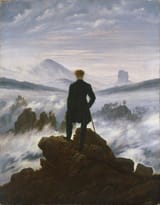Search Results
8/9/2025, 10:17:04 PM
In reflecting on the trajectory of European cultural history, it's hard not to see the Romantic Era—spanning roughly from the late 18th to the mid-19th century—as a high watermark of creative and intellectual vitality. This period saw an outpouring of works that celebrated individualism, emotion, and the sublime forces of nature, all rooted in a distinctly Western ethos of exploration and introspection.
Consider the symphonies of Beethoven, which pushed orchestral music to new emotional depths, or the poetry of Wordsworth and Shelley, evoking a profound connection to the natural world and human spirit. In literature, Goethe's *Faust* grappled with the eternal quest for knowledge and meaning, while painters like Turner and Friedrich captured landscapes that mirrored the inner turmoil and grandeur of the human soul. Even in philosophy, figures like Hegel and Schopenhauer laid groundwork for understanding history and will in ways that influenced generations.
What strikes me as particularly noteworthy is how this era reached its musical zenith toward its close, with composers building on Romantic ideals to their fullest expression. Take Erik Satie, whose works in the late 19th century, such as the *Gymnopédies* (1888), distilled Romantic introspection into sparse, meditative forms. Satie's innovative use of simplicity, ambient textures, and unconventional structures—eschewing bombast for subtle emotional resonance—represented a peak refinement of the era's emphasis on personal expression and atmospheric depth. It was as if the Romantic impulse, having expanded to operatic heights with Wagner, found a poignant culmination in Satie's understated mastery, bridging toward modernism while encapsulating the period's core spirit.
Of course, one could argue for earlier peaks, like the Renaissance or Enlightenment, but the Romantic Era's fusion of nationalism, artistry, and philosophical depth feels uniquely cohesive.
https://youtu.be/oxqyUW2txQw
Consider the symphonies of Beethoven, which pushed orchestral music to new emotional depths, or the poetry of Wordsworth and Shelley, evoking a profound connection to the natural world and human spirit. In literature, Goethe's *Faust* grappled with the eternal quest for knowledge and meaning, while painters like Turner and Friedrich captured landscapes that mirrored the inner turmoil and grandeur of the human soul. Even in philosophy, figures like Hegel and Schopenhauer laid groundwork for understanding history and will in ways that influenced generations.
What strikes me as particularly noteworthy is how this era reached its musical zenith toward its close, with composers building on Romantic ideals to their fullest expression. Take Erik Satie, whose works in the late 19th century, such as the *Gymnopédies* (1888), distilled Romantic introspection into sparse, meditative forms. Satie's innovative use of simplicity, ambient textures, and unconventional structures—eschewing bombast for subtle emotional resonance—represented a peak refinement of the era's emphasis on personal expression and atmospheric depth. It was as if the Romantic impulse, having expanded to operatic heights with Wagner, found a poignant culmination in Satie's understated mastery, bridging toward modernism while encapsulating the period's core spirit.
Of course, one could argue for earlier peaks, like the Renaissance or Enlightenment, but the Romantic Era's fusion of nationalism, artistry, and philosophical depth feels uniquely cohesive.
https://youtu.be/oxqyUW2txQw
7/16/2025, 11:48:34 PM
>>212788679
this actually leads me to an interesting question:
do more brown people actually care for 'arry pottah if you put more brown people in it?
cause i am under the impression that brownoid culture lacks the inherent spark that would click with the story in the first place.
it's like that one tweet about pic related where some black guy went "Why mus' whypypo always clim' mountains an sheeit, there aint nuthin up dere mufugga bixnood!"
this actually leads me to an interesting question:
do more brown people actually care for 'arry pottah if you put more brown people in it?
cause i am under the impression that brownoid culture lacks the inherent spark that would click with the story in the first place.
it's like that one tweet about pic related where some black guy went "Why mus' whypypo always clim' mountains an sheeit, there aint nuthin up dere mufugga bixnood!"
Page 1

